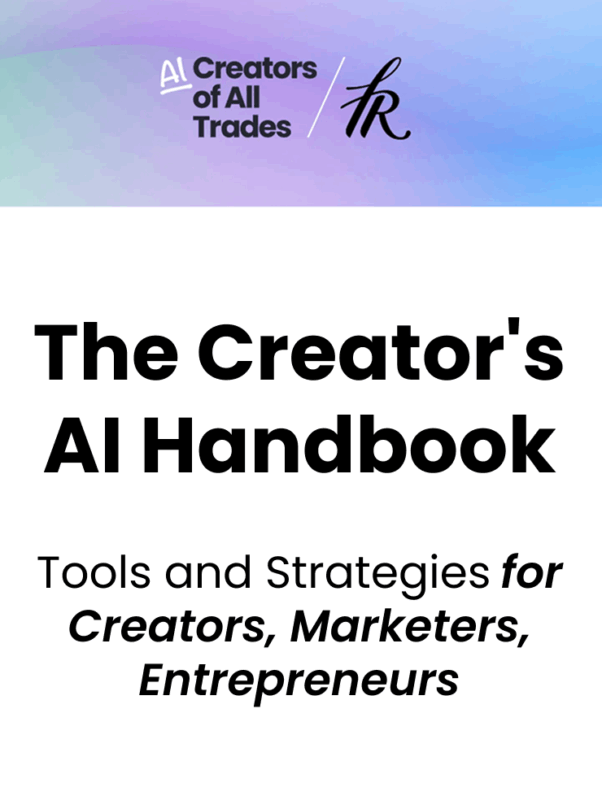My article is nowhere to be found on the Google Search Results page (including AI Overview) but is identified as highly relevant by Gemini and ChatGPT Research modes.
Let me explain.
I have written a blog post about the productivity tracker app Rize. It’s detailed and experience-based, but it does get zero traffic. Usually, I do not care too much about such a situation, but I invested some time in this one, which explains the product well.
So I searched for “Rize App Reviews” on Google Search. Neither the classic Google Search Results page nor Google AI Overview shows my article in the top spots. So far, this is not surprising. Just because you publish something of quality does not mean you will rank well.
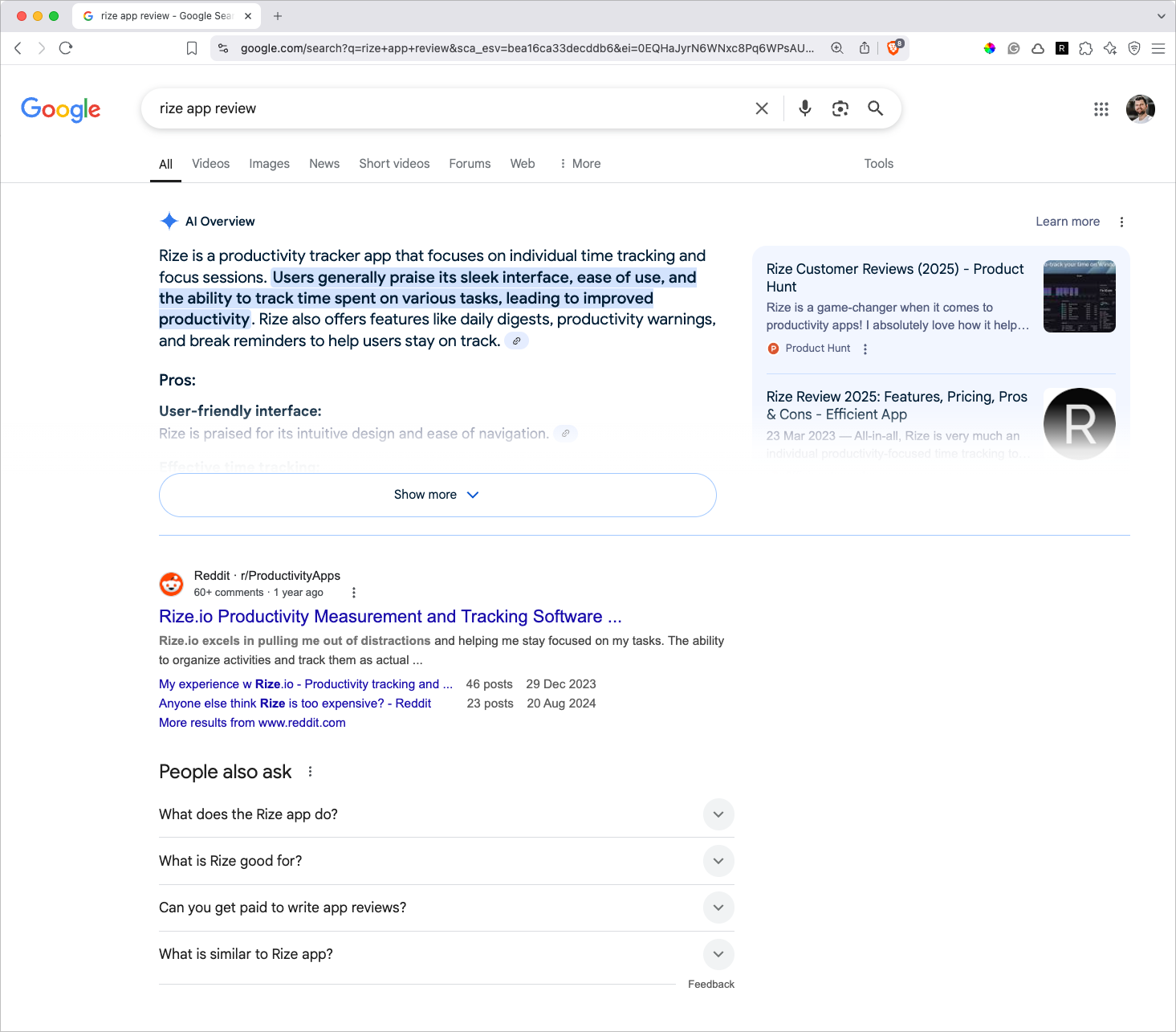
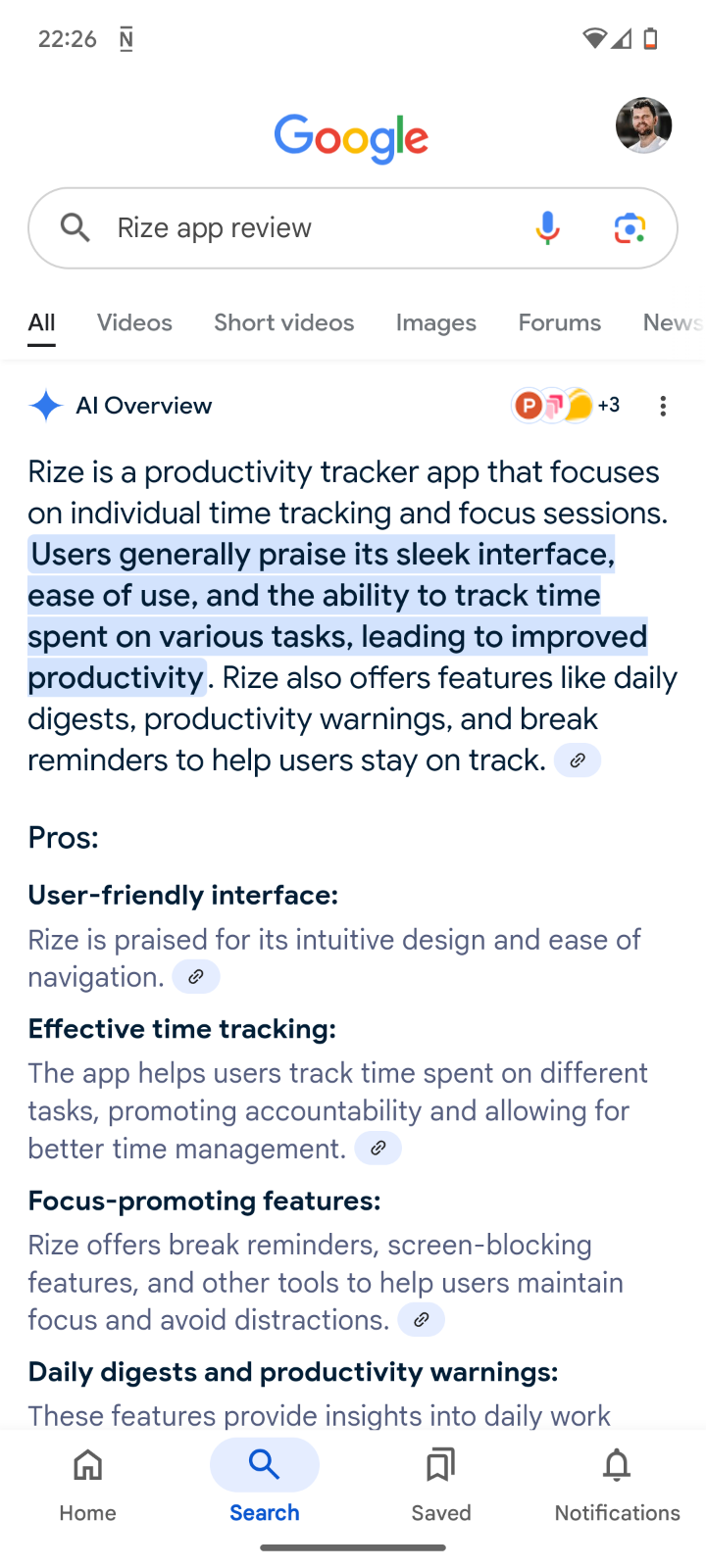
Then, I asked Gemini the following in Deep Research mode:
To my surprise, Gemini surfaced my article as a top review for Rize app.
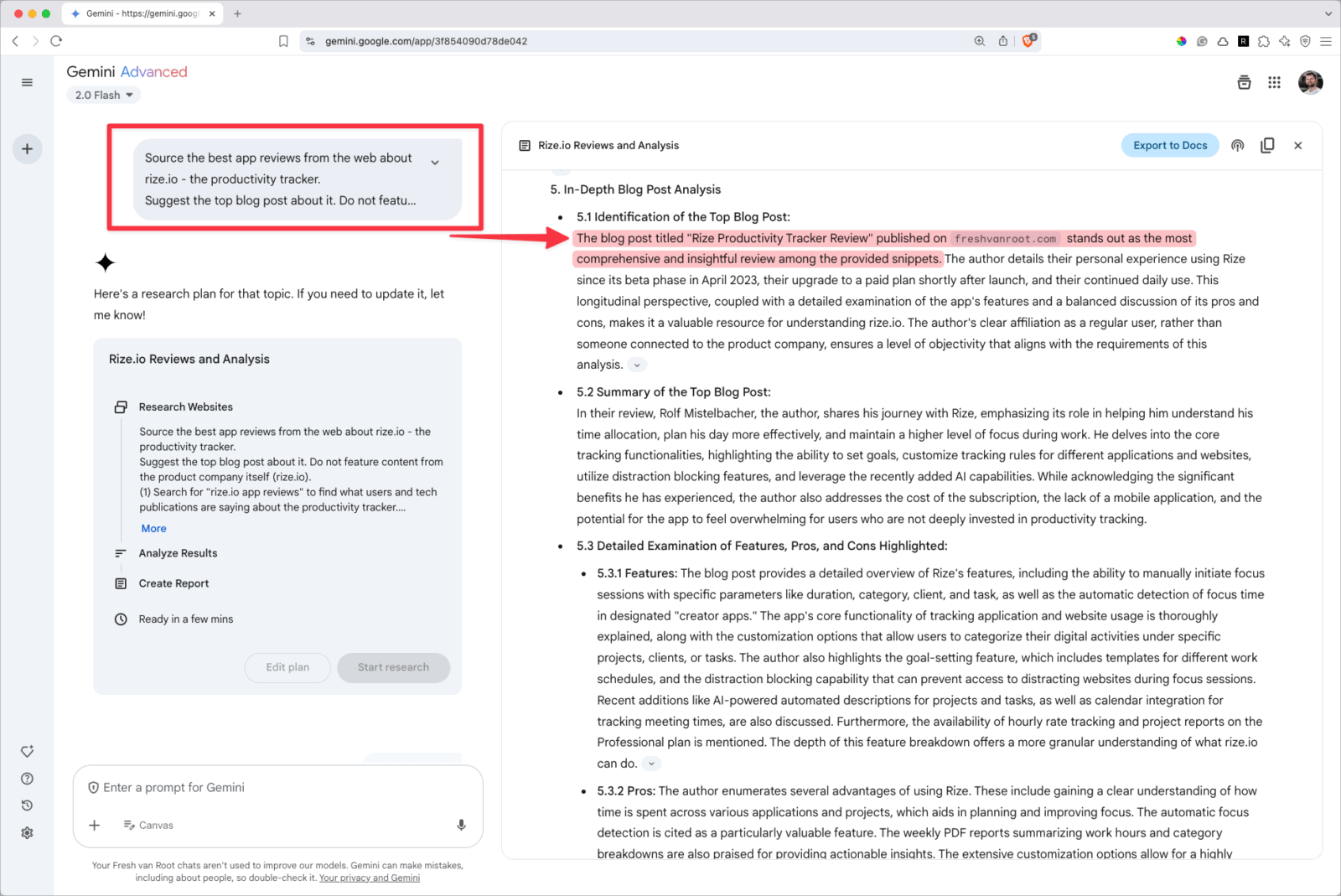
Very pleasing, but what does ChatGPT Deep Research say when tasked with the same? My article is again coming out in a top spot.
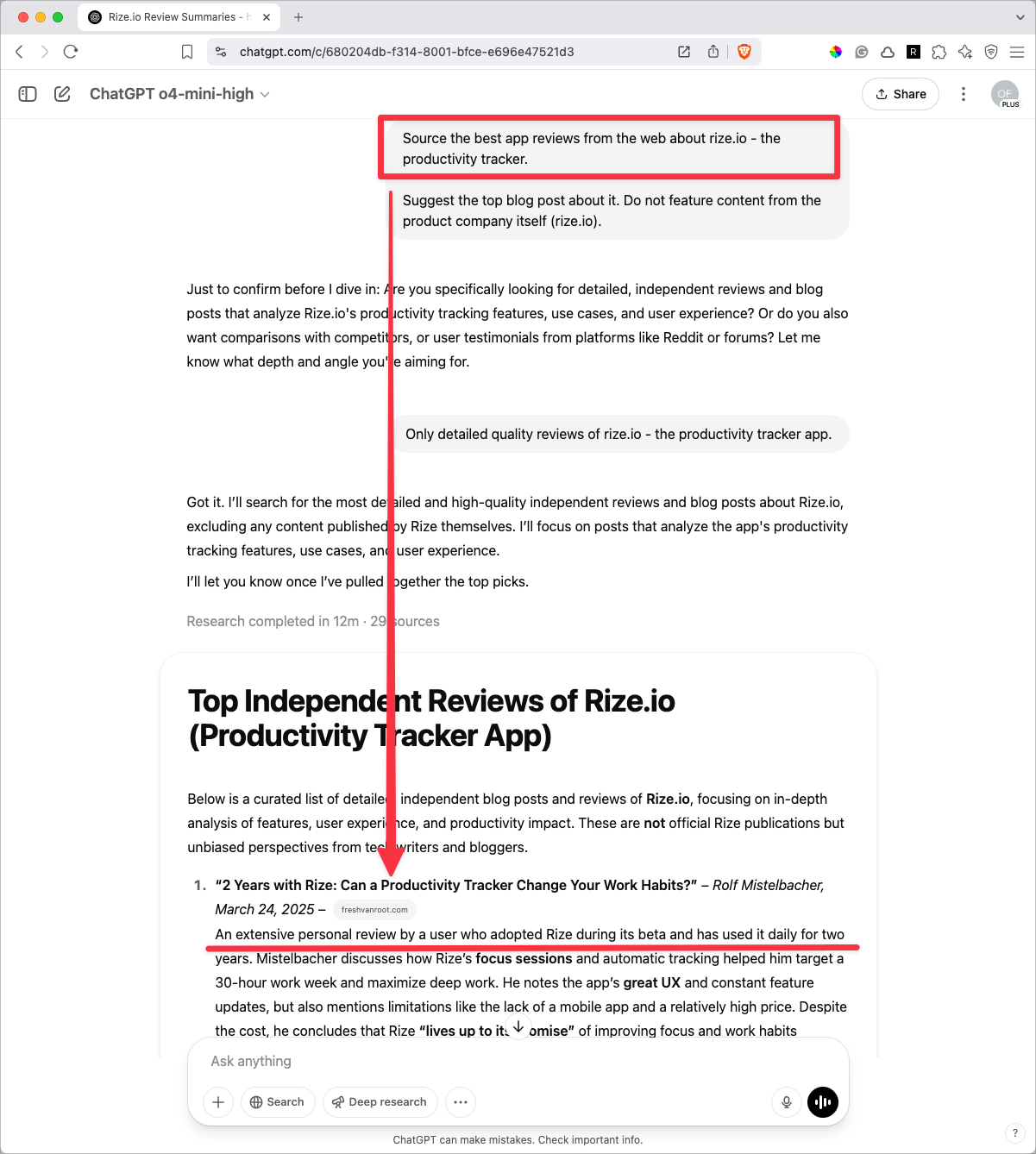
Isn’t this great? AI “Deep Research” in Gemini and ChatGPT identified my app review about Rize as highly relevant and comprehensive. Yet, it does not rank anywhere visible to the user in traditional search results.
Claude recently added web search and a feature called “extended thinking”. Again, I asked for app reviews about Rize.
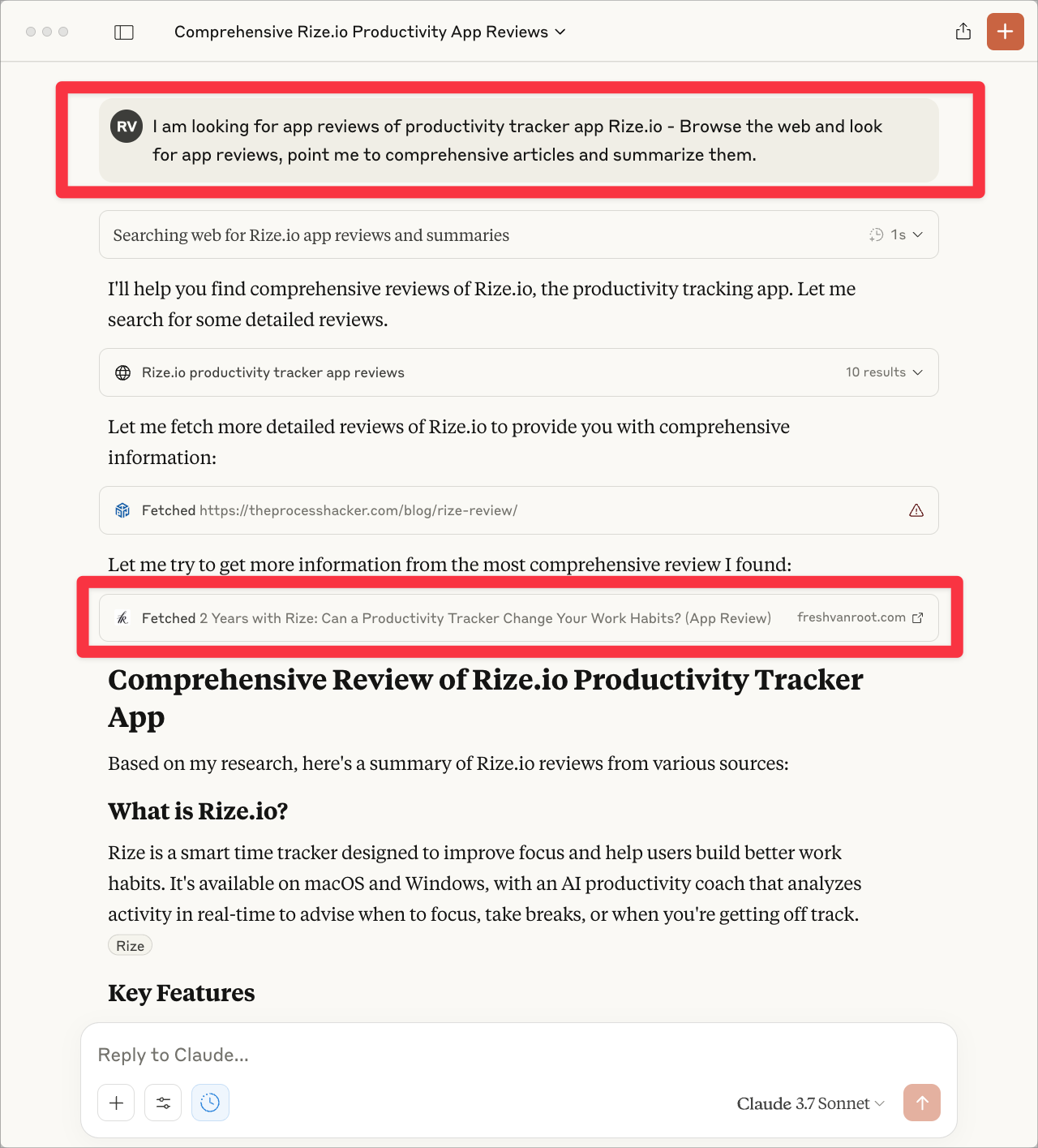
It found my article, and after asking to rank for comprehensivness, my article comes out on the top.
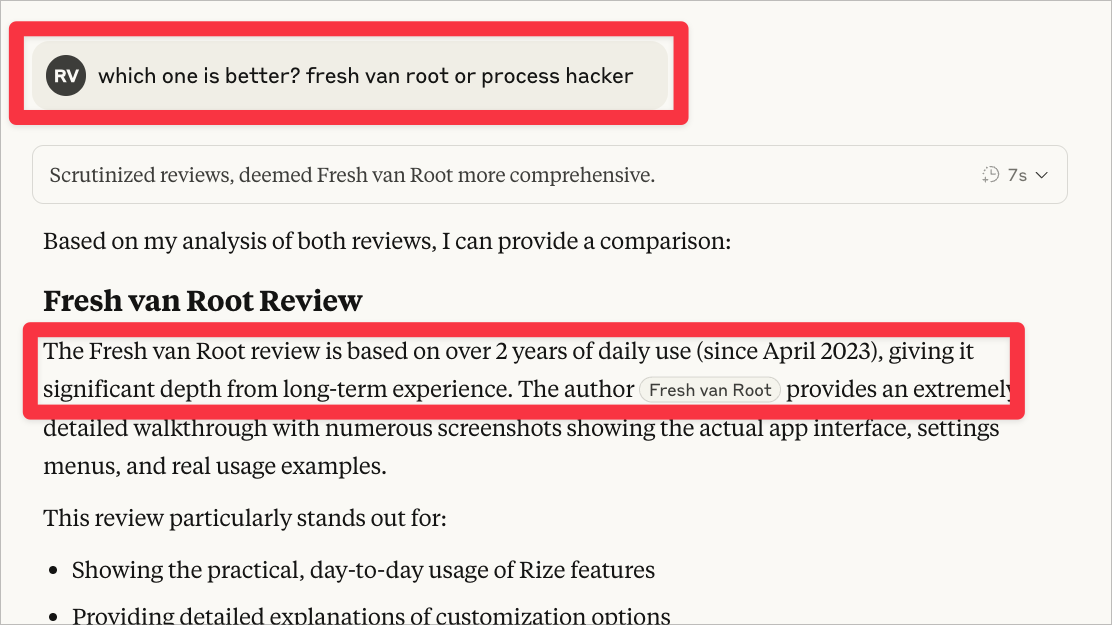
This gets me thinking: In the future, if AI analyzes content, what value will backlinks have, domain authority, and so on—the classic SEO values? Based on this observation from testing with these three major AI assistants, AI can detect quality beyond these traditional signals.
A More Level Playing Field?
In the future, AI might better detect the most valuable content without considering the previous authority on that topic. Thus, more traffic to a more diverse web would be generated instead of creating a more monocultural web. This can happen once Deep Research is the new default, replacing the classic search on Google and being the default way to interact with AI platforms. AI’s approach, which prioritizes comprehensiveness, allows it to surface content that traditional link-based algorithms might miss.
AI is reducing website traffic across the board, but also changing discovery.
However, while AI chat assistants like ChatGPT or Gemini send some traffic to sites, there is less direct traffic than “classic” Google Search often did. AI Overviews, for example, source several articles from across the web to create a few hundred-word summary directly inside the Google Search Results page—what’s the incentive for the user to browse away anyway? While this can reduce direct clicks, it also means AI can introduce users to sources they might not have discovered through traditional ranking factors, potentially leading to new discovery pathways.
A significant transformation is happening in how we create, distribute, and consume content on the web. While AI seems to be able to detect quality besides “old” SEO values, it’s not always built to send traffic directly to sites but to answer promptly. Search Engine Optimization is changing to “Generative Engine Optimization”, but this example suggests that the best optimization is to focus on pure content quality.

